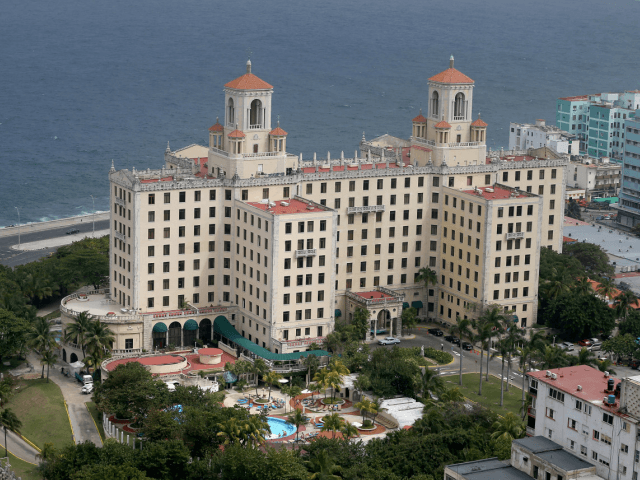The State Department confirmed on Friday that they have received complaints from private U.S. citizens who have traveled to Cuba of similar symptoms to those documented in American diplomats affected by unexplained “attacks” reportedly caused by sonic weapons.
The U.S. government has not described the incidents in question as “acoustic” or “sonic”—like reports in international media have—but recently began referring to them as “attacks.” The State Department announced the withdrawal of all non-essential embassy staff from Havana last week and demanded 15 Cuban agents at the Washington embassy leave the country.
“Since we issued the September 29 Travel Warning, we have received a handful of reports from U.S. citizens who report they experienced similar symptoms following stays in Cuba,” a State Department official told CBS News last week. “We have no way of verifying whether they were harmed by the same attacks targeting official U.S. employees.”
American citizens are not allowed to travel to Cuba for tourism purposes under current U.S. law. Cuba travel guides of Americans continue to be published and many do conduct traditionally tourist activities while there under one of the twelve categories of permissible travel:
Family visits; official business of the U.S. government, foreign governments, and certain intergovernmental organizations; journalistic activity; professional research and professional meetings; educational activities; religious activities; public performances, clinics, workshops, athletic and other competitions, and exhibitions; support for the Cuban people; humanitarian projects; activities of private foundations or research or educational institutes; exportation, importation, or transmission of information or informational materials; and certain authorized export transactions.
The Trump administration recently eliminated the “individual people-to-people” category of travel, branding it the most commonly abused for tourism purposes. As a communist state, the Cuban government owns all the nation’s businesses, with the exception of some small home-based businesses.
This month, the State Department “imposed limitations on lodging” on U.S. citizens traveling to Havana; they are no longer allowed to stay in the Hotel Nacional and Hotel Capri, where American officials believe attacks took place. “Over the past several months, numerous employees at the U.S. Embassy in Havana have been targeted in specific attacks. Affected individuals have exhibited a range of physical symptoms including ear complaints and hearing loss, dizziness, headache, fatigue, cognitive issues, and difficulty sleeping,” the statement confirmed.
Reports from a variety of American news outlets suggest the use of advanced acoustic technology to cause the symptoms in question. According to the Associated Press, American diplomats heard “agonizing sounds” in their rooms shortly before experiencing hearing loss and “concussion-like” symptoms. The State Department has confirmed 22 cases of individuals who have suffered these symptoms as a result of the unexplained incidents.
The Cuban government initially offered to cooperate in the investigation but, following the dismissal of staff from the Cuban embassy in Washington, Foreign Minister Bruno Rodríguez denied the attacks entirely. “There does not exist evidence of the occurrence of the alleged incidents, or the causes and origin of the health symptoms American diplomats and families notified us of,” Rodríguez told reporters last week, calling the accusations “science fiction.”
The September 29 travel warning followed a statement from Secretary of State Rex Tillerson announcing the withdrawal of all non-essential embassy staff. “Until the Government of Cuba can ensure the safety of our diplomats in Cuba, our Embassy will be reduced to emergency personnel in order to minimize the number of diplomats at risk of exposure to harm,” Tillerson said, adding generally that all Americans should “avoid travel to Cuba.”
The Trump administration has stated that it has no information regarding the nature of the attacks, or their origins, and insisted that they do not accuse the Cuban government of conducting the attacks. The State Department nonetheless expelled fifteen Cuban diplomats from their embassy in Washington, citing a need to keep the number of diplomats in either state balanced. State Department spokeswoman Heather Nauert has also stated that the agency’s attorneys “would certainly … be looking at” the possibility that Cuba, by virtue of failing to protect the diplomats in question, has violated the 1961 Vienna Convention, which requires host nations to protect the health of diplomats.

COMMENTS
Please let us know if you're having issues with commenting.